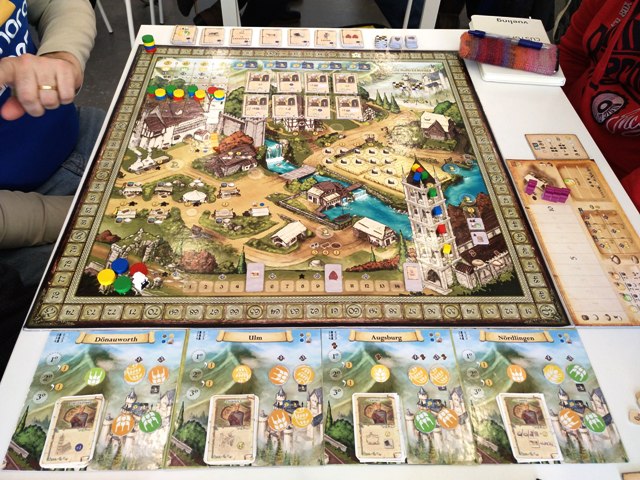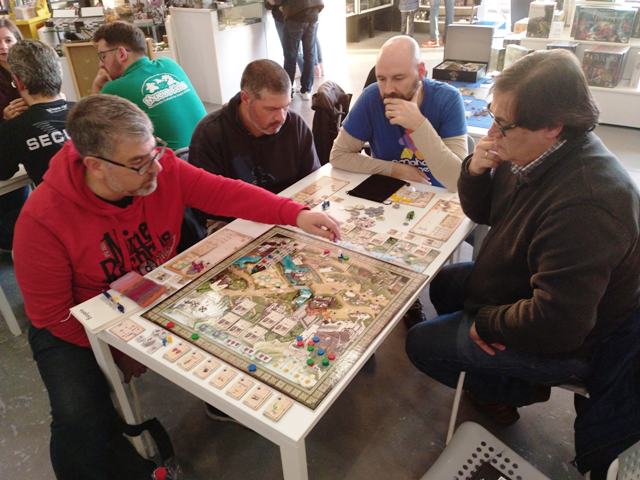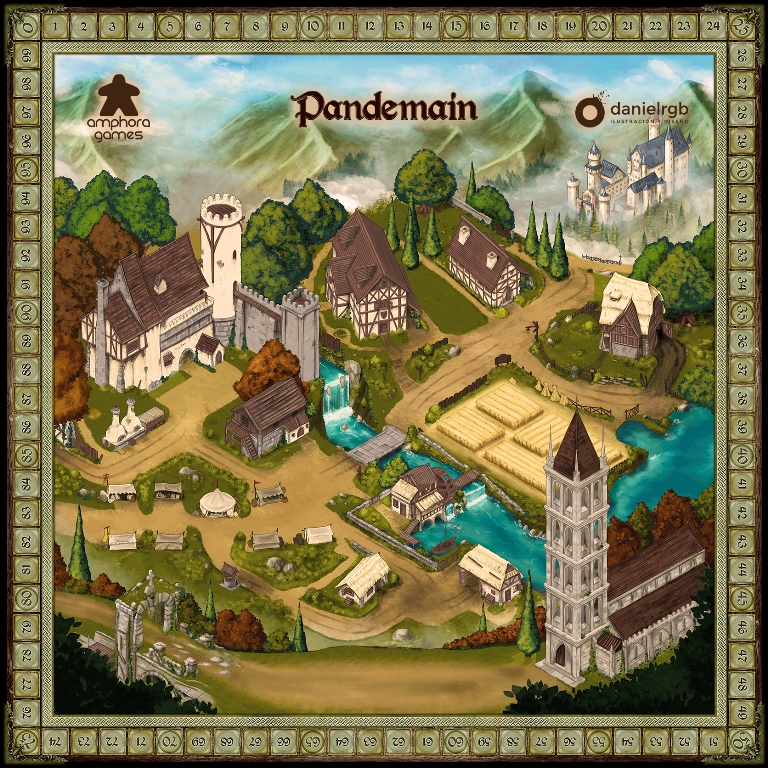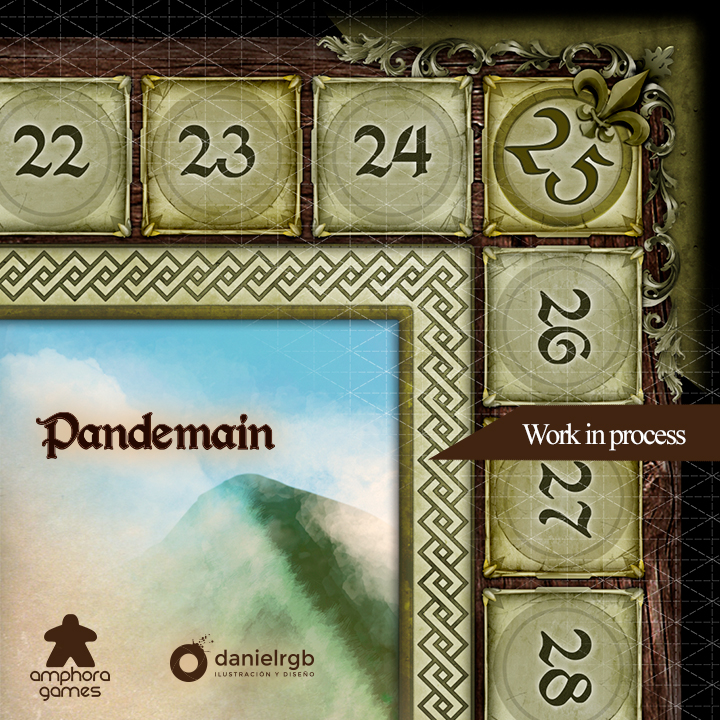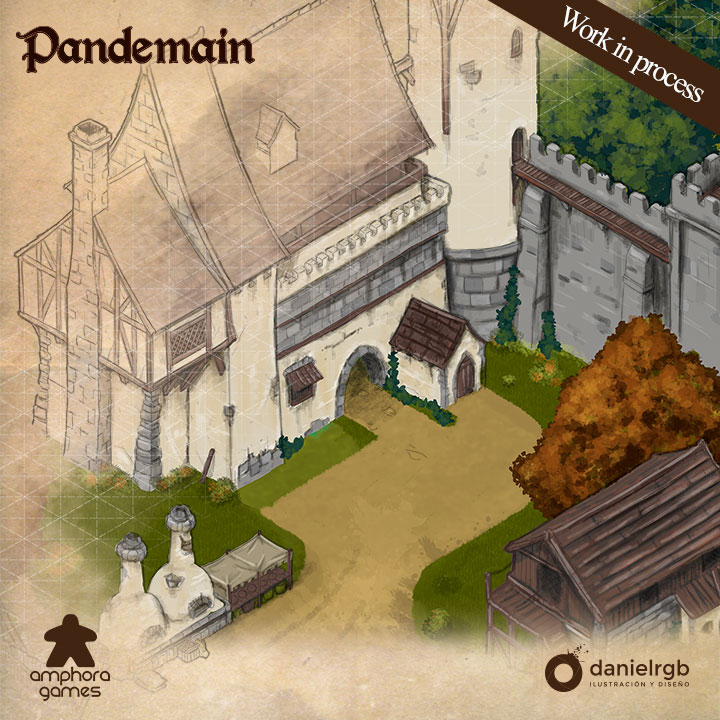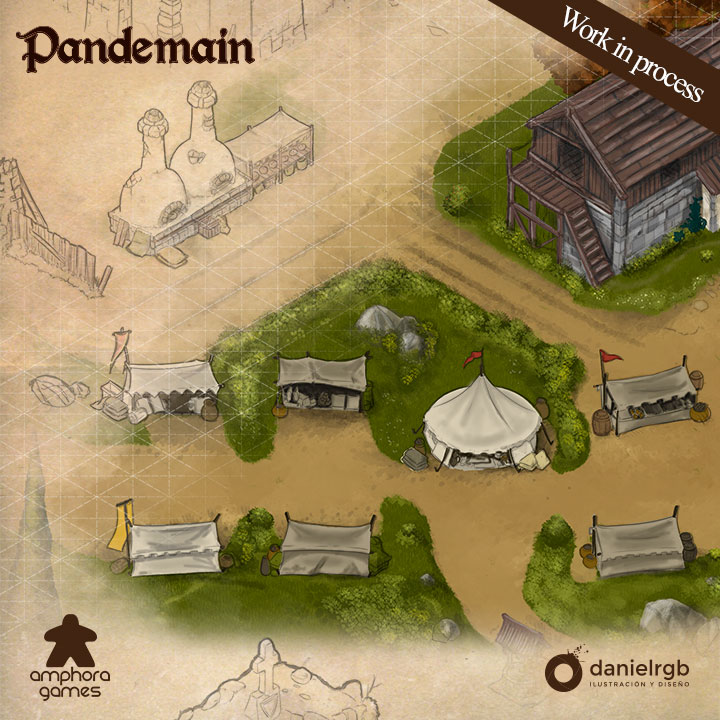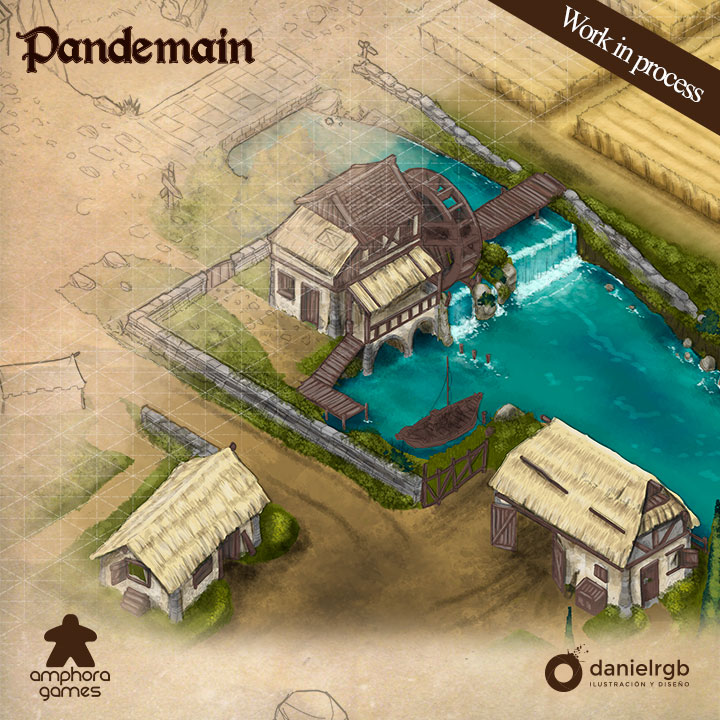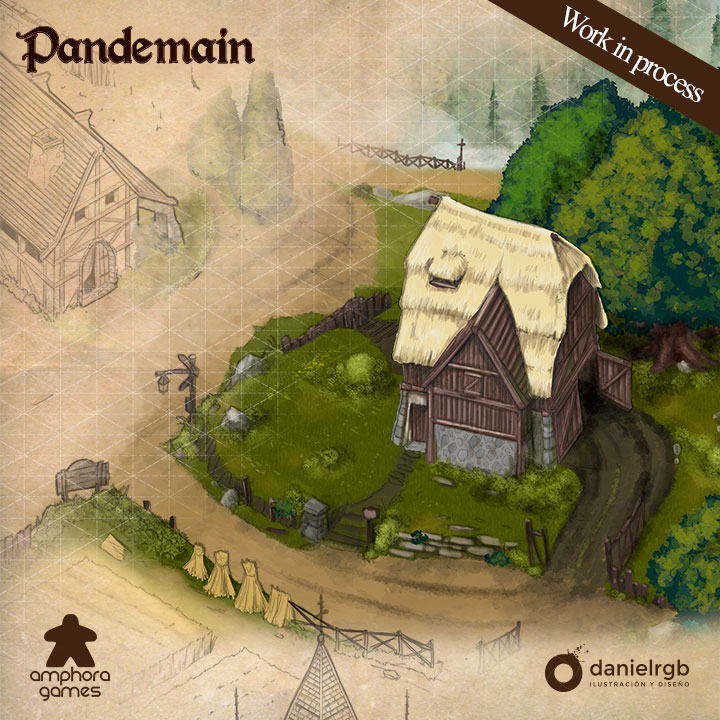Pandemain: Traditional Farmers’ Bread
In the Holy Roman Empire, we find the Duchy of Swabia extending from the Vosge range to the Lech river and the Italian city of Chiavenna. It is the year 1276 and the Inquisition’s influence controls the land. A small walled town called Nördlingen stands on the horizon. During the day, its streets are overflowed with flourishing business activity, bit at night the silence reigns, and only a few villagers are allowed to continue with their craft: the ancient art of bakery.
Pandemain: Traditional Farmers’ Bread is a euro-style game that takes action during the German middle ages. In this game, players will have to get as many victory points as they can, baking and selling bread at different villages. Enjoy exploring this enigmatic period of time and discover this ancient craft. Face the truth of this difficult time when only a few peasants escaped servile dependence of the Feudal Lord.
Pandemain: Traditional Farmers’ Bread is a game for 1-4 players where you will compete to become the best baker (with more victory points) at the end of the game. A game is played over 5 rounds, each representing one of the previous 5 days to Saint Honoratus festivity, where the best baker will be honoured.
During the game, the players will use workers to perform actions that will give them money, victory points and penance points. The most common actions are: buying ingredients, baking and selling bread, but there are many things you can do in a medieval village. The master bakers provide benefits and improve the process of baking bread, animals and carts provide ingredients and improve certain actions, and donations to the Church increase our religious influence towards the Inquisition (penance points).
Some known game mechanics used in Pandemain: Traditional Farmers’ Bread are: worker placement, set collection, trading, variable player powers and many more. In addition, we have introduced several actions that provide greater variability to the experience. The historical background of Pandemain has been verified with ancient documents and history books. Game mechanics are based on real situations found in real literature from the middle ages.
You can see more information here or subscribe to our newsletter here.
Have you played it yet?

